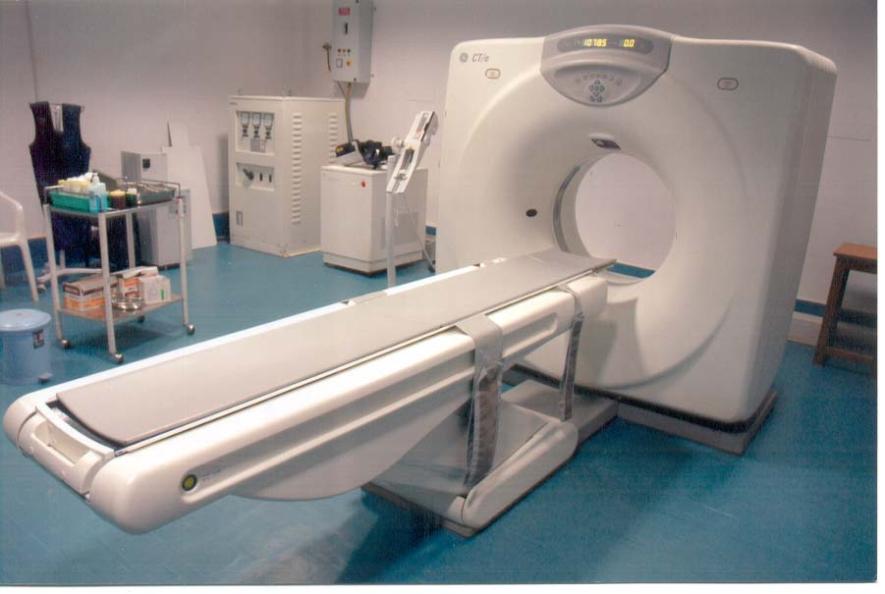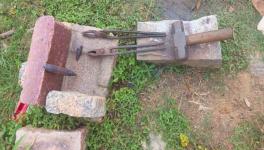Domestic Medical Devices Sector Fears New Import Policy May Hit Its Growth Prospects

Image Credit: Wikimedia Commons/Nithin Rao
The recent policy update from India’s Ministry of Environment, Forestry, and Climate Change (MoEFCC) has sparked significant concern among domestic manufacturers of high-value medical equipment. On October 15, 2024, the Environment Ministry issued an office memorandum announcing updated guidelines that broaden the scope of high-end, used, and refurbished medical devices eligible for importation.
The recent changes include advanced devices such as MRI, CT, and PET-CT scanners, robotic surgical systems, and 4K laparoscopic equipment, with the objective of streamlining import processes and enhancing access to high-tech medical equipment throughout healthcare facilities in the country.
Nonetheless, the directive, which is based on feedback from the Directorate General of Health Services and the Ministry of Health and Family Welfare, has raised apprehensions among local manufacturers. Industry representatives contend that the policy may jeopardise India's expanding medical device sector, which has made notable progress through initiatives like ‘Make in India’.
Growing Influx of Refurbished Medical Devices
The growth of India's import of medical devices in recent years is noteworthy. Data from the Association of Indian Medical Device Industry (AiMeD) indicates that imports increased by 13% from the fiscal years 2022–23 to 2023–24, totalling ₹68,885 crore. Imports of disposable supplies saw a significant rise of 17.6%, while
imports of high-end equipment essential for diagnosing and treating complex medical conditions also saw an increase. Electronic equipment imports registered a notable increase of 14.5%, reaching ₹44,132 crore, whereas implant imports saw an 11% rise, totalling ₹5,087 crore.
In light of this growth, it is noteworthy that domestic manufacturers meet only 20-30% of the nation's high-value equipment requirements. This imbalance raises significant concerns regarding the potential impact of easier access to refurbished imports on the growth of local manufacturing capacity, which could undermine India’s long-term objectives of achieving self-sufficiency in the production of high-tech medical devices.
Domestic manufacturers Apprehensive
The increase in import allowances have been strongly opposed the domestic medical devices sector, with industry players describing the policy change as a “considerable hindrance” to the progress achieved under Make in India.
Addressing a press conference, Shalini Sharma, Assistant Secretary General of the PHD Chamber of Commerce and Industry, said: “India’s medical device sector is reaching new heights, with projections to reach $50 million in the near future.” She emphasised the significance of local companies in developing advanced medical technologies, stating, “These companies represent a dynamic startup culture, with entrepreneurs poised to propel the next phase of growth.”
Other industry leaders expressed similar concerns. Rajiv Nath, forum coordinator at AiMeD, stated, “The Office Memorandum diminishes the significance of the National Medical Devices Policy 2023”, adding that import of pre-owned medical equipment to India jeopardises investments associated with the Make in India initiative. He feared that the policy could potentially deter new investments in local manufacturing.
Consequences for Patient Safety, Technology Standards
Domestic manufacturers also flagged the potential impact of refurbished equipment on patient safety and healthcare outcomes. In contrast to new devices, refurbished equipment frequently does not incorporate the most recent technological innovations and may exhibit visible signs of use, potentially impacting its performance and reliability.
Sudhir Srivastava, former chair of the Medical Device Committee at PHDCCI, also expressed concern, stating, "Permitting the entry of refurbished medical equipment jeopardises India's advancement in medical technology and conveys a contradictory message to investors."
He added that refurbished imports tend to undermine the quality of care and discourage investment in domestic innovations.
Local manufacturers contend that refurbished devices might not reliably meet the stringent quality and safety standards established for new equipment, which could pose risks for patient care.
Atul Sharma, Co-Founder of Innvolution Healthcare Pvt. Ltd., said, “Refurbished equipment may lead to increased maintenance expenses and have reduced lifespans, which could ultimately elevate healthcare costs.”
He added, “Assertions that refurbished equipment is more cost-effective for smaller cities are deceptive. India’s vision for self-reliant healthcare is fundamentally dependent on the cultivation of local innovation.”
Call for Re-evaluation
Industry stakeholders have urged the government to re-evaluate its stance on refurbished imports, particularly concerning devices that are already within the manufacturing capabilities of Indian companies. They said they supported policies aimed at prioritising domestic manufacturers and ensuring that imported equipment is consistent with the nation's “overarching vision” for a self-sustaining the medical technology sector.
The AiMeD has urged Finance Minister Nirmala Sitharaman to evaluate the possibility of adjusting customs duties, removing inverted duty structures, and regulating trade margins to enhance the competitiveness of domestically manufactured equipment.
Furthermore, industry leaders have emphasised the importance of
transparency in the refurbishment process.
Srinivasa Reddy, Senior Vice President of SS Innovations, said, “The lack of consistent support and ongoing policy issues related to the import of refurbished devices may critically hinder India’s advancement and ability to successfully integrate into the global MedTech supply chain.”
India’s Healthcare Future
India’s healthcare sector occupies a distinctive position, navigating
the dual objectives of ensuring access to advanced medical technology while simultaneously promoting the development of a strong domestic industry. The government's investment in initiatives such as the Production Linked Incentive (PLI) scheme aims to enhance local manufacturing. However, the market continues to depend significantly on imports for high-value equipment.
Industry leaders have, therefore, proposed a strategic approach that limits refurbished imports to designated categories, simultaneously promoting innovation and investment in domestic research and development.
The updated guidelines have also sparked demands for more focus on domestic production capabilities, post-market surveillance, and a regulatory framework that ensures patient safety while fostering innovation.
Meanwhile, the government's reported consideration of industry concerns suggests that the upcoming months could lead to more modifications in the import policy. Industry stakeholders the forthcoming policies will better align with India's goal of establishing a globally competitive MedTech sector.
The writer is a Delhi-based freelancer who writes on health issues and medical discoveries.
Get the latest reports & analysis with people's perspective on Protests, movements & deep analytical videos, discussions of the current affairs in your Telegram app. Subscribe to NewsClick's Telegram channel & get Real-Time updates on stories, as they get published on our website.
























